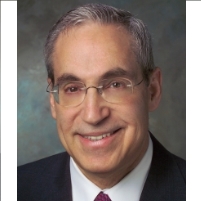Defense Nuclear Facilities Safety Board: Who is Peter Winokur?
Sunday, July 04, 2010

With 40 years of experience as a scientist and engineer in the field of radiation effects science, technology, and hardness assurance in support of military and space systems, Peter S. Winokur took over the chairmanship of the Defense Nuclear Facilities Safety Board, which monitors health and safety at nuclear facilities, on March 19, 2010, after spending the previous three and a half years as a board member.
Winokur received his Bachelor of Science in physics from The Cooper Union in Manhattan in 1968. That same year he was hired as a scientist in the Optical Character Reader Division of Control Data Corporation, a leading supercomputing firm in Rockville, Maryland.
In 1969, he became a physicist in the Radiation Effects Branch of Harry Diamond Laboratories in Washington, DC. He spent 14 years at the lab, during which he pursued his Master of Science (1971) and PhD (1974) in physics from the University of Maryland. In 1979, he was promoted to senior staff physicist.
Winokur joined Sandia National Laboratories in Albuquerque, New Mexico, in 1983 as a member of the technical staff for the Advanced Microelectronics Development Division.
Four years later he was promoted to supervisor of the Radiation Technology and Materials Division, working on radiation physics, materials, and modeling in support of advanced technologies with severe reliability and radiation hardness requirements. He also initiated semi-conductor manufacturing technology.
In 1989, Winokur was made manager of the Radiation Technology and Assurance Department, leading programs focused on radiation-effects science and technology, hardness assurance, and development of radiation-hardened microelectronics for military and space applications. In 1998 he was involved in developing tests to determine if bipolar electronics, used for analog signal processing in satellites, could survive radiation exposure in space.
Winokur also served as vice-president and then president of the IEEE’s Nuclear & Plasma Sciences Society in the early 2000s.
He left Sandia in 2001 to become an IEEE [Institute of Electrical and Electronics Engineers] Congressional Fellow in the office of Senator Harry Reid (D-Nevada). As an energy and transportation advisor, Winokur crafted energy policy that included tax legislation for renewable energy. His two-year fellowship, was extended to a third year at the request of Reid.
Winokur remained in Washington when he accepted a position as senior policy analyst in the area of congressional affairs for the National Nuclear Security Administration. He served as a liaison to Congress on issues dealing with nuclear weapons, nuclear nonproliferation, energy, and research and development.
In September 2006, President George W. Bush appointed Winokur to serve on the Defense Nuclear Facilities Safety Board.
He is a fellow of the Institute of Electrical and Electronic Engineers and the American Physical Society. Winokur is the author of 140 publications, including more than 30 invited papers, book chapters, and short courses.
While working for Sen. Reid, Winokur had this to say about the way government works: “The process of making legislation is not for the naive or idealistic, and it’s not perfect and precise like research endeavors strive to be. It’s politics, people, process, and patience.”
-Noel Brinkerhoff
Official Biography (DNFSB)
The Senate Energy Bill Circa 2002 (by Peter S. Winokur, Nuclear & Plasma Sciences Society News) (pages 35-37, pdf)
How Congress Works (by Peter S. Winokur, 2001 IEEE-USA Congressional Fellow)
- Top Stories
- Unusual News
- Where is the Money Going?
- Controversies
- U.S. and the World
- Appointments and Resignations
- Latest News
- Musk and Trump Fire Members of Congress
- Trump Calls for Violent Street Demonstrations Against Himself
- Trump Changes Name of Republican Party
- The 2024 Election By the Numbers
- Bashar al-Assad—The Fall of a Rabid AntiSemite






Comments